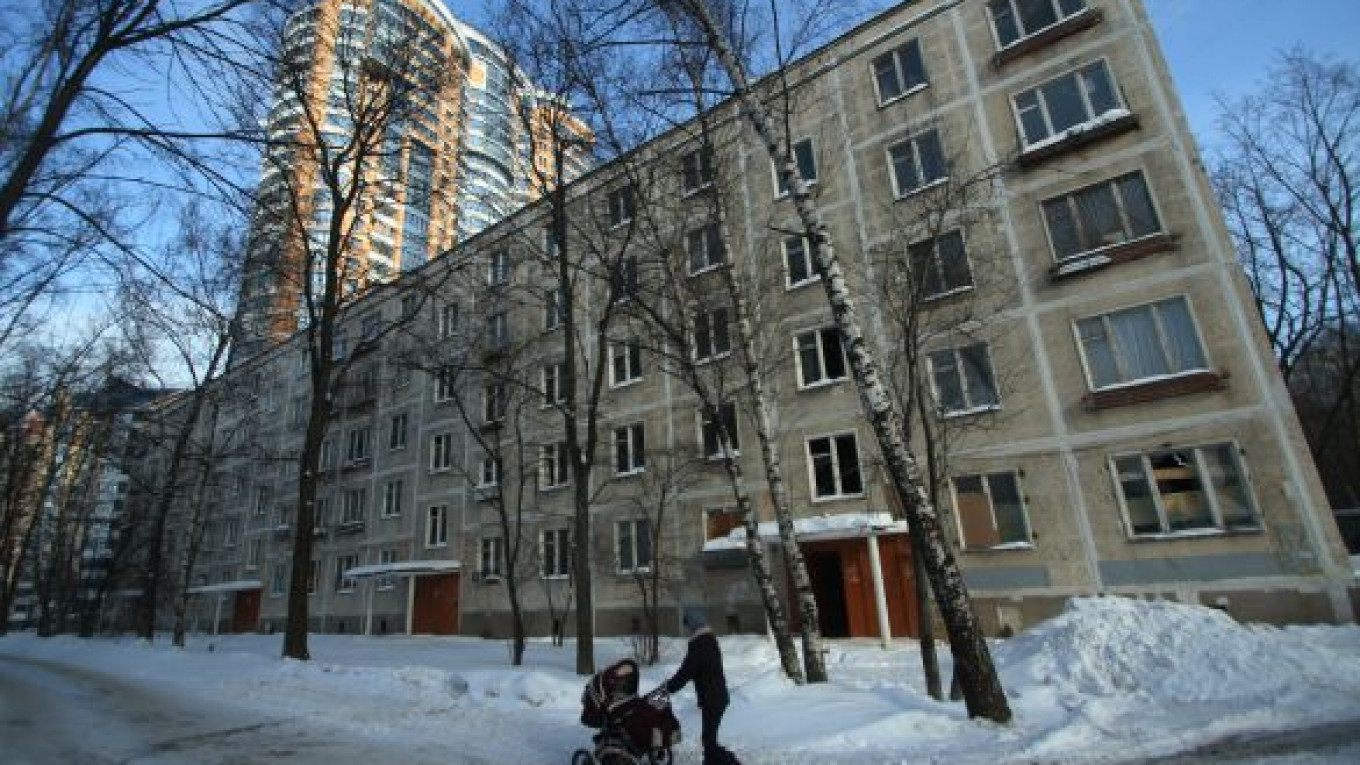An Economic Development Ministry proposal to halve the tax rate on income from apartment rentals is a step in the right direction, but still unlikely to pull the mass of unregistered landlords into the open, real estate consultants said Monday.
The proposal appeared in the ministry's latest plan to stimulate economic growth, published earlier this month, and would reduce the tax on rent revenues to between 50 and 60 percent of the 13 percent personal income tax.
A measly 5 percent of Moscow landlords currently pay taxes on their rental income, cheating the city government out of about 27.5 billion rubles ($790 million) a year, president of the Institute of Urban Economics, Nadezhda Kosareva, told Vedomosti earlier.
"I think it is a great idea, if they implement it and stick to it," said Maxim Mokeyev, executive director of Evans Property Services.
The Moscow government has already instituted two more economical alternatives to the personal income tax in an attempt to draw landlords out of the shadow economy, but both have been undermined by recent legal changes, Mokeyev said.
If the landlord registers as an "individual entrepreneur," a one-time process that costs 800 rubles ($23), they can pay a 6 percent tax on their revenues or purchase a so-called "patent," a license to freely rent the property for a year, at a flat rate of 60,000 rubles ($1,700).
"When they started the patent process, it drew a lot of people out into the legal playing field," Mokeyev said.
But beginning this year, a single patent only covers the rental of one apartment, where previously it could be applied to a number of properties, he said.
What's more, the social security payments that registered individual entrepreneurs are obliged to pay have increased to almost 38,000 rubles a year ($1,150), pushing many back into the shadow economy and further deterring landlords from declaring their income.
Ultimately, "extremely few" people have purchased patents, and the causes of this run deeper than the details of various tax schemes, Konstantin Aprelyev, vice president of the Russian Guild of Realtors, said Monday.
"People do not want to get involved with bureaucracy … 60 to 70 percent of lessors are elderly people, pensioners, with no significant income," Aprelyev said. "They treat renting apartments like a manner of social support."
To compel the majority of landlords to pay taxes, the government would have to substantially lower the tax while increasing the penalties for avoiding it, he added.
"To take a 2 percent tax from 90 percent of the market is much more profitable than to take 13 percent from between 3 and 5 percent of the market," Aprelyev said.
A special, lower tax rate just for apartment rentals would be the best approach, Mokoyev said, adding that the additional mound of paperwork for tax authorities could render this approach unfeasible.
Taxpayers would also be more willing to pay their taxes if they knew the destination and ultimate social function of the funds, Aprelyev said.
"If the money went to the construction of schools or kindergartens, or other specific facilities … it would be possible to get more support in collecting taxes," he added.
Contact the author at [email protected]
A Message from The Moscow Times:
Dear readers,
We are facing unprecedented challenges. Russia's Prosecutor General's Office has designated The Moscow Times as an "undesirable" organization, criminalizing our work and putting our staff at risk of prosecution. This follows our earlier unjust labeling as a "foreign agent."
These actions are direct attempts to silence independent journalism in Russia. The authorities claim our work "discredits the decisions of the Russian leadership." We see things differently: we strive to provide accurate, unbiased reporting on Russia.
We, the journalists of The Moscow Times, refuse to be silenced. But to continue our work, we need your help.
Your support, no matter how small, makes a world of difference. If you can, please support us monthly starting from just $2. It's quick to set up, and every contribution makes a significant impact.
By supporting The Moscow Times, you're defending open, independent journalism in the face of repression. Thank you for standing with us.
Remind me later.






